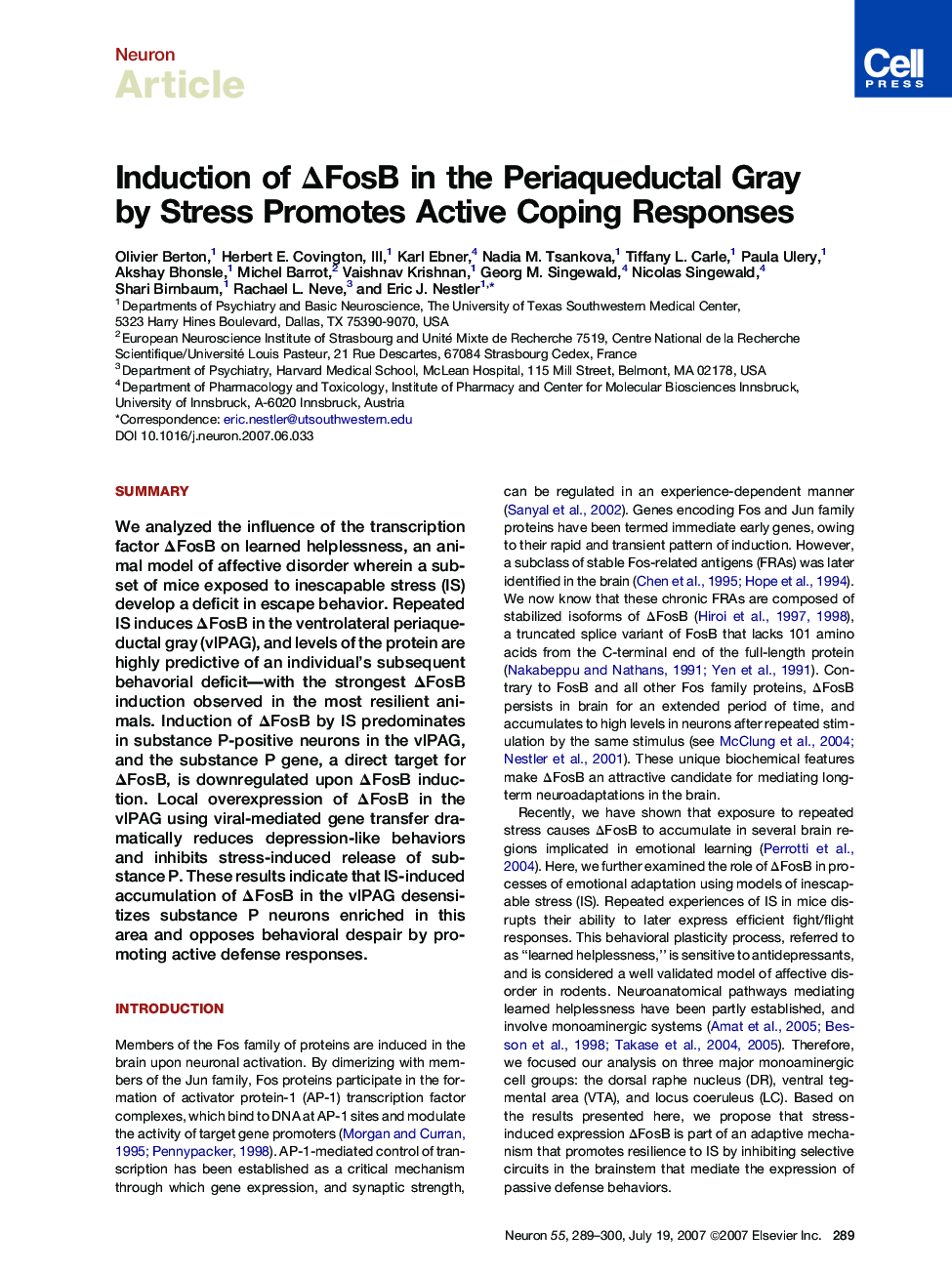| Article ID | Journal | Published Year | Pages | File Type |
|---|---|---|---|---|
| 4322599 | Neuron | 2007 | 12 Pages |
SummaryWe analyzed the influence of the transcription factor ΔFosB on learned helplessness, an animal model of affective disorder wherein a subset of mice exposed to inescapable stress (IS) develop a deficit in escape behavior. Repeated IS induces ΔFosB in the ventrolateral periaqueductal gray (vlPAG), and levels of the protein are highly predictive of an individual's subsequent behavorial deficit—with the strongest ΔFosB induction observed in the most resilient animals. Induction of ΔFosB by IS predominates in substance P-positive neurons in the vlPAG, and the substance P gene, a direct target for ΔFosB, is downregulated upon ΔFosB induction. Local overexpression of ΔFosB in the vlPAG using viral-mediated gene transfer dramatically reduces depression-like behaviors and inhibits stress-induced release of substance P. These results indicate that IS-induced accumulation of ΔFosB in the vlPAG desensitizes substance P neurons enriched in this area and opposes behavioral despair by promoting active defense responses.
